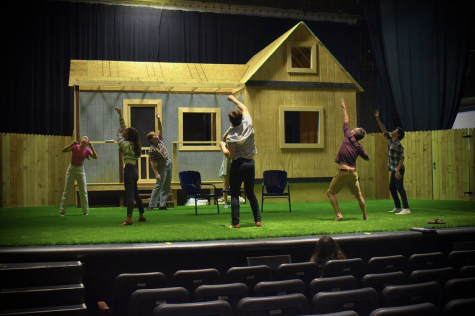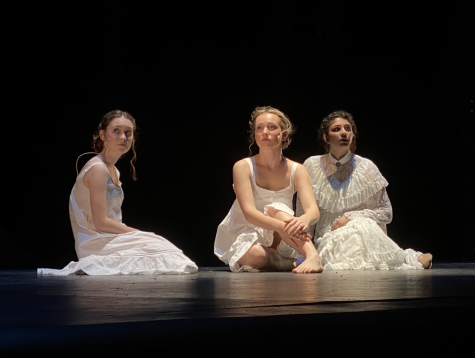Theater: A Pleasurable Pastime or a Precursor to Success?
Berkeley’s Advanced Drama
Struggling through hours of homework and projects, groggily studying until 1 a.m.—we’ve all been there at some point. Why would you even think twice about adding anything else to an already busy schedule? But what if it was something that could enhance your reading comprehension skills, elevate your academic average and even raise scores on the dreaded SAT? Such a miracle does exist, but maybe where you would least expect it.
Joining the performing arts can do everything listed above and more. Dedicating a small pocket of time in the short term will ultimately pay off. The performing arts encourage students to lose their inhibitions about themselves and rewards them with higher self-esteem. Performing also has the ability to increase a student’s desire to attend school, according to the American Alliance for Theater and Education (AATE http://www.aate.com/). By performing in theater, a student can relieve stress and find a fun and relaxing way to spend an otherwise trying day. By giving a student something to be excited about, theater encourages school attendance among kids who would otherwise skip without a second thought.
It may seem counterintuitive, but spending time studying theater can have a profound impact on students’ reading skills, according to the AATE. Certain things may seem obvious. For example, reading Shakespeare will indeed assist a budding actor or actress with reading comprehension and public speaking; but with a better understanding of complex texts also comes heightened math and science skills, increasing all around academic averages. Regardless of the subject, independent reading is generally a key part of the class. Whether it is learning about genetics from a textbook or reading classic literature for English, being a quick reader with the ability to easily process information is always handy. Thus, theater improves students’ abilities in all subjects by bettering their reading comprehension skills.
With high school comes the inevitable standardized testing. In fact, one of the first things that may come to mind when one mentions the phrase junior year is SATs. According to the College Entrance Examination Board, using four years’ worth of SAT data, students involved in drama performance scored and average of 65.5 and 35.5 points higher on the verbal and mathematics sections, respectively. These statistics clearly show a direct correlation between the arts and success in education. Although some may argue it takes up time that students could use to study vocabulary or math formulas, participation in theater requires students to put the their knowledge and critical thinking skills to use, just as they would have to in the actual test. Thus, it can be said that performing is an even more effective means of preparation. When participating in improvisation, students don’t have a script and are required to think on their feet. When in a play, they are forced to focus on the moment and nothing else. Without these types of skills, test taking would prove to be far more challenging than it already is.
Joining theater is more than just dressing up in extravagant costumes and memorizing lines. Performance is an expressive outlet, a stress reliever, and, most importantly, it is also a way to develop skills you will use your whole life.
In addition to serving as a staff writer on the "Fanfare," Mira is an avid participant in the Arts. She can often be found with her nose in a book, singing,...

Sean Quan Nguyen, also known by his squad as Shawn, is a sophomore at Berkeley Prep. His favorite pastimes include maneuvering a soccer ball and performing...







